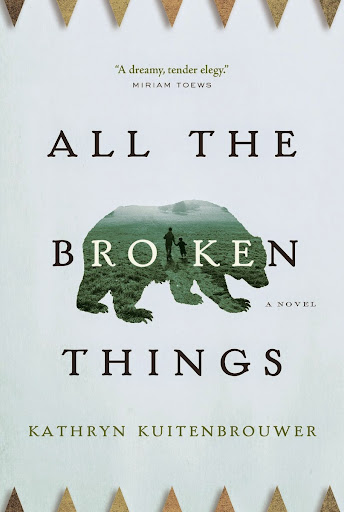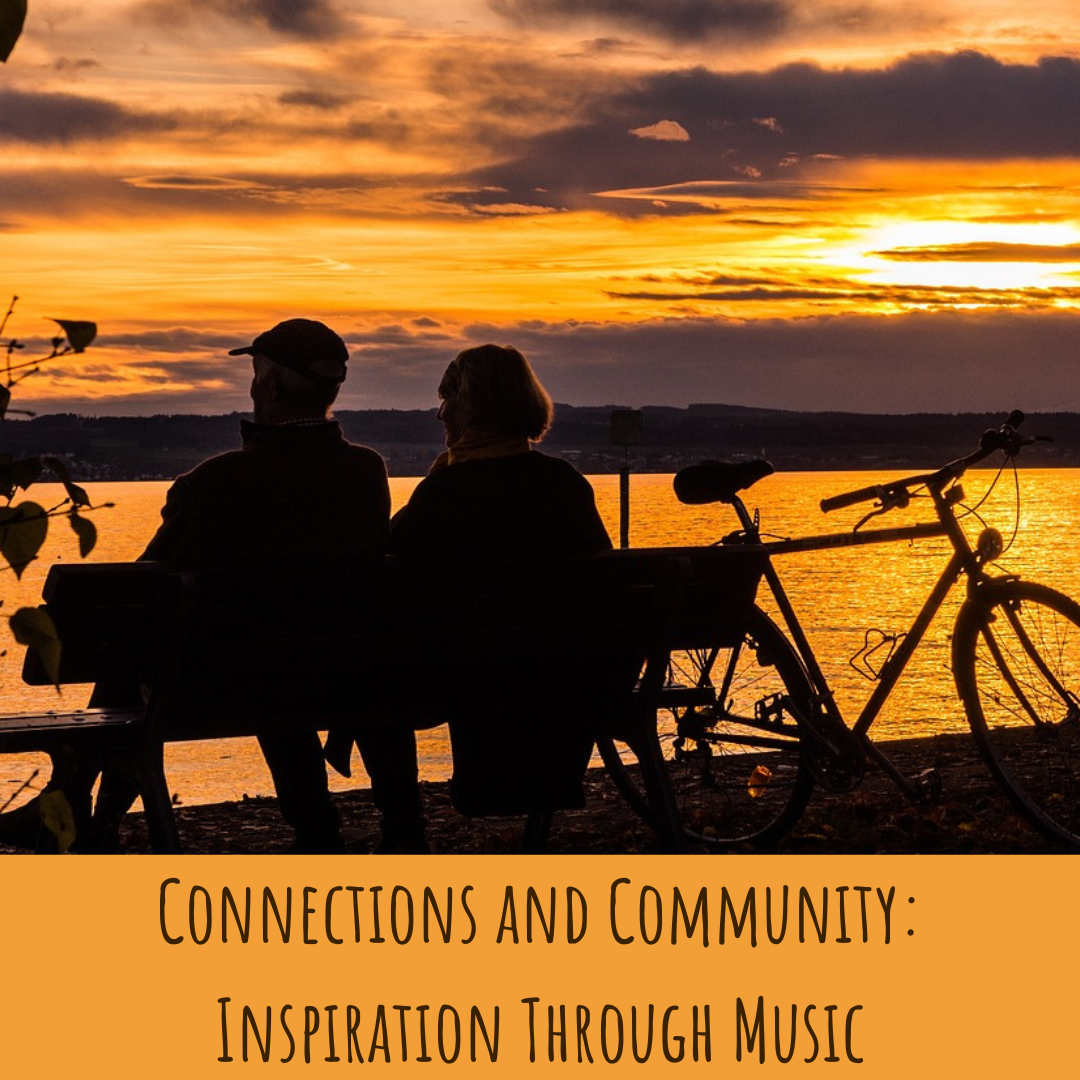All the Broken Things
Have you ever read a book that grabbed you by the heart and never let go? Such is the case with All the Broken Things, a novel written by Canadian author Kathryn Kuitenbrouwer. It’s a beautiful story of growing up, crossing cultures, the long-lasting impact of war and chemical warfare, friends, enemies, languages, and, inexplicably (until you dig in), bears and carnivals.

This intimate look into the lives of Bo and his family include many themes, woven together like a tapestry. There is the liminality of his age and place, the many aspects of living with disability (and hiding it), a horrific chemical that people have used on other humans, cultural differences, languages, understanding and cluelessness, growing up, the guilt and love of a mother, the cherishing of something of your own to love, protectiveness, hard work, and family. I believe every person has a tapestry – some are richly colored, some are nubbled with difficulties, some are worn smooth with longevity. Bo’s tapestry is not a beautiful one, but is strong, durable, and woven through with love and determination.
What I find irresistible about this book is the honesty of sharing what it is like for an immigrant growing up in a new land, finding his way, and the marginality of belonging to neither culture, the otherness that displaced people often find themselves marooned in. It is something that most people will never experience for themselves, yet the book is the personalization of cross-cultural adaptation and integration. It is also an intimate look into living with a disability (or with someone with a disability), and the attendant issues that arise from that.
But don’t think that this book is difficult, or hard to read; on the contrary, it is one of the most rewarding books I’ve ever read. It is so well-written, sensitive, and compelling! I was drawn in from the beginning, and could not put it down. I cheered love, cried at hardships, rooted for understanding, and wished the book would never end. It’s that good. Once you read it, the story will stay with you forever, as great books do.
Highly recommended for reading (and rereading), giving, sharing.
We were lucky enough to catch up with Kathryn, to ask about the inspiration, backstory, crossing cultures, and more. Here’s what she had to say…

Please tell us about your new book, All the Broken Things...
All The Broken Things is the story of a fourteen-year-old Vietnamese boy named Bo, his sister, named Orange, who has severe physical limitations as a result of their parents being exposed to Agent Orange during the Vietnam War. The story is set 1983-4, in a marginal enclave in Toronto, Canada, and follows Bo four years after he emigrates. He is spotted by a carnie while fighting a classmate and is hired to work in the carnival, specifically a bear-wrestling gig that travels to all the local county fairs. His situation becomes particularly complicated when the man who runs the freak show at these fairs discovers that Bo has a sister with unusual deformities.
Thematically, the novel is interested in the intersection of the human being and the animal being — and in how we ‘see’ difference in order to place ourselves above it. One important aspect of the story is the mistreatment, or strange treatment, of both animal creatures for entertainment, and the “freakish” body as a site for voyeuristic gazing. The novel asks the questions: How do we assess through seeing? Is difference hierarchical? How can we know others, even animal others? Can empathy bridge differences?
What inspired you to write this novel?
I discovered that bear wrestling had been popular in Ontario into the 1970s (it still exists in some US states), and also that Agent Orange was manufactured in a small town in Ontario under contract to the US Military. Somehow, the unlikelihood of these two historical facts being in the same book began to generate into an energetic story in my mind. I did not know until well into writing the book, why that was, or that the intersection had to do with freakshow, with spectacle, or with how humans have organized hierarchies of being.
Agent Orange is the slang name for the chemical sprayed to defoliate Vietnam’s jungles. There is ample evidence that it was known the chemical was both mutagenic and carcinogenic. Vietnam is now dealing with a third generation of babies affected by the dioxin produced by the chemical.
My last novel, Perfecting, spanned the years from the end of the Vietnam War (the war the Vietnamese call The American War) to just after 9/11, and as I was researching it, I was increasingly interested in this particular ten-year war crime of Agent Orange being sprayed on Vietnam as a defoliant. When I discovered Canada had participated in this egregious warfare, I wanted to make it explicitly clear that we had a debt to pay. The victims of this spraying have never been properly compensated. I do not know whether a novel can really fully do this, but I write — that is my only tool, really — and so I wrote this.
I decided to represent a severely disabled Agent Orange character in my neighbourhood, to collide the evidence of wrong-doing — a wrong-doing so far away it is easy to pretend it didn’t happen — into our physical geography, and to see what then would happen when I did. I have been experimenting with telling stories in this way for some time. By moving global events into my neighbourhood, I hope to fully realize them in that space, to bring the unconscious into consciousness. The effect strikes me as eerie and always reminds me of the emotional undertow of fairytales. All The Broken Things has been called “enchanting,” and I was very happy with that, since it was one of the initial impulses of the book.
You describe crossing cultures so well - what sort of research or life experience do you bring to this story?
Footage of Agent Orange affected children was some of the most arresting, sad research I did. I spoke to Vietnamese people about their experiences leaving Vietnam on fishing boats after the war. I also read Vietnamese fairy and folk tales, accounts of Agent Orange being sprayed, accounts of the war, books on disability, on zoos, circuses, bear wrestling, and novels by Vietnamese writers. The novels The Sorrow of War by Bao Ninh and The Gangster We Are All Looking For by Lê Thi Diem Thùy both moved me, and may have informed something of the tone of my novel.
I spoke to people with disabilities, asking them about their experiences. I also read quite a lot of literature around disability, notably Michael M. Chemer's Staging Stigma: A Critical Examination of the American Freak Show, and Extraordinary Bodies by Rosemarie Garland-Thomson, but also several memoirs and biographies of circus freaks. If people are interested, they can look for a Tumblr I made called “May I Stare At You?” which holds some of the research I amassed into spectacle and seeing.
I also read many books about bears. I enjoyed Smiling Bears: A Zookeeper Explores the Behavior and Emotional Life of Bears by Else Poulsen, and everything Charles Russell has written about his experience in Kamchatka living alongside Russian brown bears. The films Grizzly Project (Peter Lynch) and Grizzly Man (Werner Herzog) and the many bear videos I watched helped me understand the physical presence of bears. I also spoke to a man who had wrestled bears in the 1970s in Ontario.
Agent Orange was such a horrific thing to be created - and be used against humans. What inspired your interest in this - and how did you research and finesse writing about it so sensitively?
I hope I answered the first part of this already. As for sensitivity, when I realized how much the novel relied on seeing, on the human tendency to privilege sight as a way of “knowing,” and also that I would be representing people from a culture not my own, I knew the only way to be honest to the material was to simply be as open-hearted to it as I could. I knew I was not going to get it right — how could I? — but what seemed intuitively right to me, was that if I was going to misrepresent, and misunderstand (the sister, the bear, or any character in the novel), then it would ultimately be a failure of empathy.
If there is a failure of empathy, and if I have been as open and true to this notion as I can, then the only thing is to try harder, to be more open. And that dovetails with the impulse of the novel. It is, at its heart, a novel about failing to fully see. We are none of us so intact that we can see ourselves, or others, and the only answer to that human dilemma is to keep trying.
What's up next for you?
I am working on a novel set in part in the American Civil War, which may or may not be a kind of ghost story.
Is there anything else you'd like to share with us?
All The Broken Things is currently unavailable for purchase anywhere but Canada. I’d love to hear from anyone interested in reading it. I can be found on social media – the regular places.
http://kathrynkuitenbrouwer.com/
https://www.facebook.com/kathryn.kuitenbrouwer
https://twitter.com/KKuitenbrouwer
http://penguinrandomhouse.ca/books/228326/all-broken-things#9780345813541
Note: We received a review copy of All the Broken Things from the author and publisher - thank you SO MUCH.
Photos courtesy and copyright Kathryn Kuitenbrouwer



















